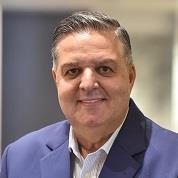Steve Jordan talks to Samer Darwish from Darwish Logistics in Syria. If you think business is tough in your country – read this.
 It was back in April 2015 that The Mover last wrote about Samer Darwish, founder of Darwish Logistics in Syria. The article spoke of how he built two successful businesses in the Middle East, whilst fleeing war zones. It concluded with a simple statement: ‘Till the next chapter’. The next chapter is written.
It was back in April 2015 that The Mover last wrote about Samer Darwish, founder of Darwish Logistics in Syria. The article spoke of how he built two successful businesses in the Middle East, whilst fleeing war zones. It concluded with a simple statement: ‘Till the next chapter’. The next chapter is written.
Without going over too much old ground, Samer’s story deserves to be retold. He grew up in Damascus, Syria in the 1970s. His uncle was a customs broker and it was he who fired his love for the logistics industry. He had always wanted to move to the Gulf and, when his career was new, he had the chance to work in Kuwait for a freight forwarding company. It was while he was there that Iraq invaded Kuwait and Samer was forced to flee with his family back to Syria.
On his return he took a low-paid job with a removals company believing that there were prospects in a developing country in a strategic location. After over ten years of hard work he was able to buy the company and form Darwish Logistics. He quickly expanded the business to become a respected part of the international moving community, including memberships of FIDI, LACMA, BAR, IAM and UTS (now Harmony). Then came the civil war in Syria in 2011. History was about to repeat. Again, Samer fled, this time to Dubai, continuing his business there and running the Syrian operation as best he could from a distance. “I just wanted to keep the business going because I knew it would come around in the end,” he said.
Samer said that in the beginning business was good because everyone was leaving. But when the war was at its height, business was very tough. “Sometimes there was no work at all,” said Samer. He had to reduce his staffing level and some people left anyway because of the fighting. He also lost his biggest warehouse, a 7,000m2 facility in Aleppo to the bombing, along with its entire contents. “We just did what we could to survive.”
Samer stayed away for only about a year, returning to Damascus, which was within the government-controlled area, in 2014. “We had some commercial business but there was no chance of doing work from outside the government area. It was very dangerous in Syria at that time,” he said. “Sometimes we didn’t even cover the salaries, but we supported the business from Dubai.”
He moved back full-time in 2018 and started to rebuild his business. But things had changed. Although his remaining staff, down to just 14 people, were grateful that he had kept them on and kept the business going, their attitude had changed. “War changes people,” said Samer. He said that they had become more aggressive, unfeeling and complaining without their old understanding of customer service.
Their attitude was understandable. Some had lost their homes and even members of their families during the war. Many didn’t even notice the change in themselves. But Samer set about trying to recreate what they had in the old days. He rewrote the quality manual, gave them additional training and now employs a motivational trainer to come in every week. He helped them to rebuild their lives too, helping them get their children back into schools and providing financial support. He also worked hard to recruit a new generation of workers. “But they are hard to find,” he said. “Most of the younger generation left, so I work with what I have.”

Today, Darwish Logistics has 34 employees. It’s still suspended from FIDI but only because it’s impossible for the auditors to work in the country just now. And Samer is very positive about the future. “When the sanctions are lifted Syria will be the most targeted country for investment,” he said. “The infrastructure has to be rebuilt so companies and people will come back.” So, will it be investment from Russia or the USA that will drive the growth? “Many countries will be interested to take part, but I believe China will have the biggest role.”
We ended our story in 2015 with a quote from Samer. “I know that to succeed all you take with you is the lessons learned from the hardships you face and the sweetness you experience from your own accomplishments. Never give up, it’s not over until your passion and ambitions are too.”
Well said Samer. Till the next chapter.